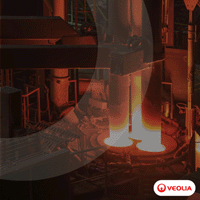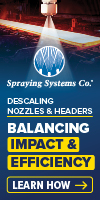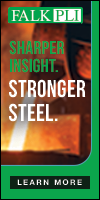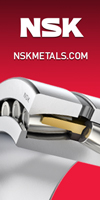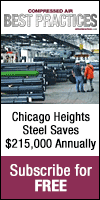Wheeling Pittsburgh Reports 3rd Quarter Results Nov. 8, 2006 — Wheeling-Pittsburgh Corp., the holding company of Wheeling-Pittsburgh Steel Corp. reported net income of $17.0 million on net sales of $482.7 million for the quarter ended September 30,
11/08/2006 -
Nov. 8, 2006 — Wheeling-Pittsburgh Corp., the holding company of Wheeling-Pittsburgh Steel Corp. reported net income of $17.0 million on net sales of $482.7 million for the quarter ended September 30, 2006.
Third Quarter Results — The $17.0 million net income ($1.15 per basic and $1.14 per diluted share) compares to a net loss of $21.1 million ($1.47 per basic share and diluted share) for third quarter of 2005.
Net sales of $482.7 million compare to net sales of $374.9 million for the third quarter of 2005. Net sales for the third quarter of 2006 and 2005 included $15.7 million and $21.0 million, respectively, from the sale of coke to the company’s joint venture partner.
Net sales of steel products totaled $467.0 million on steel shipments of 609,730 tons, or $766 per ton. For the third quarter of 2005, net sales of steel products totaled $353.9 million on steel shipments of 567,577 tons, or $623 per ton. The increase in net sales was due to an increase in the volume of steel products sold and a $143 per ton increase in the average selling price of steel products, offset by a decrease in the sale of raw materials.
Cost of sales totaled $427.9 million as compared to cost of sales of $371.9 million for the third quarter of 2005. Cost of sales for the current quarter included $14.1 million cost of raw materials sold. Cost of sales for the third quarter of 2005 included the cost of raw materials sold of $14.5 million.
Cost of sales of steel products sold totaled $413.8 million, or $679 per ton. Cost of sales of steel products sold during the third quarter of 2005 totaled $357.4 million, or $630 per ton. The $56.4 million overall increase in the cost of steel products sold resulted principally from an increase in the volume of steel products sold and a $49 per ton increase in the cost of steel products sold. The increase in the per ton cost to produce steel products was principally due to changes in the cost of certain raw materials and fuels, offset by the cost absorption benefit of an increase in volume.
Comments —"We saw solid pricing and demand for our products in the third quarter," said James G. Bradley, Chairman and CEO. "Operations turned in a strong quarterly performance with all major units averaging production that was four percent above planned levels, with liquid steel production reaching a record of 707,000 tons. Production was hampered only by our ability to obtain slabs on a timely basis for our hot strip mill.
"Along with the broader carbon flat rolled market, we experienced a dramatic decline in the rate of incoming orders for the fourth quarter," Bradley added. "Heavier imports coupled with automotive and housing start declines have combined to drive service center inventories above target levels. This has driven spot market prices down to a level at which we have chosen not to participate. Consequently, we are expecting a decline in fourth quarter shipments of about 25% as compared to the prior quarter and a corresponding decline in operating rates. As a result, we currently expect to incur an operating loss in the fourth quarter."
Bradley concluded, "We believe the production cuts announced by the larger domestic producers should result in reduced service center inventories in the fourth quarter, and we look to see the market improve, and our shipments to increase early in 2007."
Wheeling-Pittsburgh is a steel company engaged in the making, processing and fabrication of steel and steel products using both integrated and electric arc furnace technology. The company manufactures and sells hot rolled, cold rolled, galvanized, pre-painted and tin mill sheet products. The Company also produces a variety of steel products including roll formed corrugated roofing, roof deck, floor deck, bridgeform and other products used primarily by the construction, highway and agricultural markets.



.png?lang=en-US&ext=.png)
